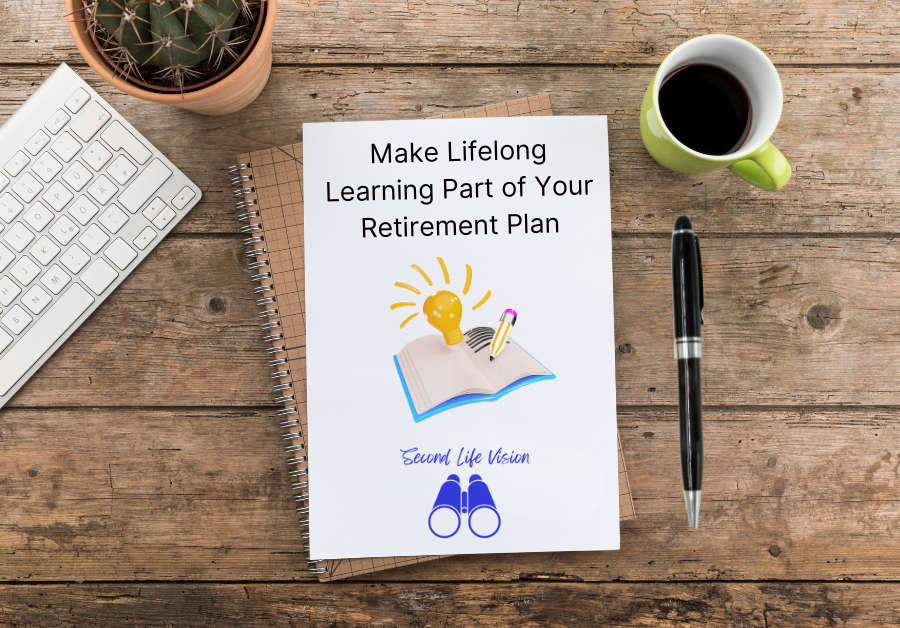Earlier this week, I submitted the final assignment to complete the Plain Language Certificate at Simon Fraser University. Completing this program was the latest step in my lifelong learning journey. It was also a reminder of the importance of learning at every stage of life. In fact, lifelong learning should be part of everyone’s retirement lifestyle plan.
Read on to find out the benefits of lifelong learning, and the variety of learning options available to you—many of them free.
Benefits of lifelong learning
If you need a reason to continue learning throughout your lifetime, consider these benefits of lifelong learning.
- It keeps your brain engaged and your mind sharp. Research has shown that continual learning can delay age-related memory loss.
- Learning opens your mind to new ideas and diverse opinions. It can give you a new perspective on things going on in your community and around the world.
- Taking a class can improve social connections by giving you the opportunity to meet new people who share the same interests as you.
- Learning something new boosts your confidence. There’s nothing like the sense of accomplishment you get from mastering a new skill or achieving an educational milestone.
- It reduces boredom. Studies have shown being bored and having too much time on your hands can be a problem for anyone suffering from mental health issues.
- For parents and grandparents, being a lifelong learner sets a great example for the next generation. A couple of years ago, when a co-worker graduated from a college program, her young daughter asked “Mommy, why do you go to school? Adults go to work, kids go to school.” She responded with the following quote, which is sage advice for everyone:
You are never too old to set another goal or dream a new dream.
C.S. Lewis
3 types of learning
If the thought of studying gives you nightmares, keep in mind that lifelong learning takes many forms. Cambridge University Press identifies three types of learning—formal, informal and non-formal. Let’s take a closer look at each one.

Formal learning
Formal learning is the traditional school, college and university learning you’re probably most familiar with. It is organized and structured, and has learning objectives. It’s something you intentionally plan to do.
This type of learning follows an established curriculum, involves evaluation, and usually leads to a recognized credential like a diploma or degree.
Informal learning
On the other hand, informal learning is never organized and has no set objective. Simply put, it’s the learning you get from working or just living. It’s what some people call the school of life. Unlike formal learning, informal learning doesn’t lead to a credential.
In the digital age, opportunities for informal learning have exploded! You’re doing it right now by reading this blog post. Other examples of informal learning are TED Talks, YouTube videos, and podcasts. Even reading or watching TV can result in informal learning.
Non-formal learning
Non-formal learning is an organized learning activity that takes place outside the formal educational system. It doesn’t follow an established curriculum, nor does it lead to a recognized credential.
Some examples of non-formal learning you’re probably familiar with are swimming or other sports lessons, music lessons and non-credit courses through colleges and universities. Work-related professional development seminars and conferences also fall into this category.
MOOCs may be the way of the future
MOOCs (Massive Open Online Courses) are a type of non-formal learning that has grown significantly in the last decade. You can find MOOCs on platforms like Coursera, Udacity or edX. These courses are usually free and are available to anyone, anywhere, anytime. Many of the courses are developed and delivered by leading universities. For example, edX was founded by Harvard and MIT.
MOOCs are hugely popular. The edX platform alone has over 10 million learners actively participating in classes every month. (Source: Medium) With thousands of courses to choose from, these platforms are an excellent way to learn something new.
Traditionally, non-formal learning hasn’t led to a credential. In recent years, there has been an evolution where most MOOC platforms now offer the opportunity to earn unique credentials, sometimes known as microcredentials.
All dogs need to learn new tricks
They say you can’t teach an old dog new tricks. But perhaps the reason the dog gets old is because he has stopped learning!
Once you stop learning, you start dying.
Albert Einstein
As you move into retirement, lifelong learning will help you stay engaged and relevant. You might as well get started now!
If you need help creating a plan for a smooth transition for your retirement, contact me to set up a free call to discuss my coaching services.

Comments
2 responses to “How to make lifelong learning part of your retirement plan”
Love this idea of planning to keep on learning. So good, Michelle!
Thank you, Wynne. I can’t imagine a time when I’ll ever stop learning. Now that I’m finished with the Plain Language Certificate, I have to decide what’s next. 😀